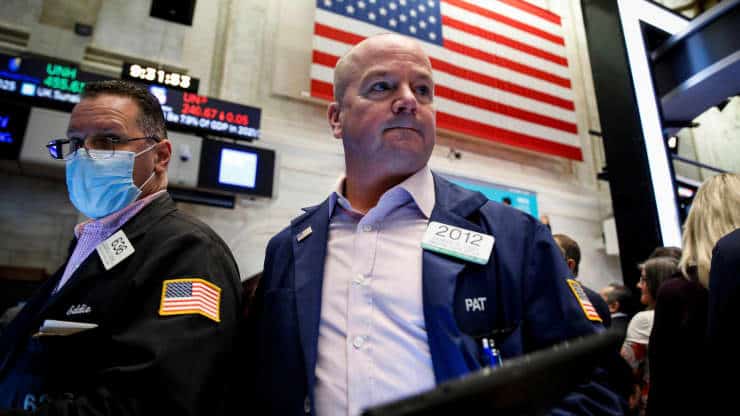U.S. stock futures rose slightly in overnight trading on Sunday as investors readied for the first trading of November.
Market participants are gearing up for another week of corporate earnings, a key Federal Reserve meeting on Wednesday and October’s jobs report.
Dow futures rose 80 points. S&P 500 futures gained 0.25% and Nasdaq 100 futures rose 0.25%.
Stocks closed out the month of October on Friday and all three major averages closed at record highs. The S&P 500 and Nasdaq clinched their best months since November 2020.
The Dow Jones Industrial Average rose 5.8% in October. The S&P 500 rallied 6.9% last month and the technology-focused Nasdaq Composite added 7.3% in October. The month marked a rebound from September, where the major indexes declined.
Corporate earnings season dominated October amid solid earnings even with global supply chain concerns. About half of the S&P 500 companies have reported quarterly results and more than 80% of them beat earnings estimates from Wall Street analysts, according to Refinitiv.
As earnings season continues this week, investors will also be monitoring the Federal Reserve’s two-day meeting Tuesday and Wednesday. The central bank is widely expected to announce that it will begin to unwind its $120 billion in monthly bond purchases and end the program entirely by the middle of next year.
Investors will also be looking for the Fed’s comments on rising prices as inflation has been running at a 30-year high.
“The Fed is part of a global move to remove accommodation, and the market drives right past that,” Bleakley Advisory Group CIO Peter Boockvar said. “In a way, the stock market is playing a game of chicken, with this inflation move and interest rates and the response from central banks.”
The other big event for the week will be October’s October employment report Friday, which could show some improvement in hiring, as new cases of Covid-19 continued to decline.
“The change in nonfarm payrolls is expected to be a robust 450K which is likely to again lower the unemployment rate,” said Jim Paulsen, chief investment strategist for Leuthold Group. “Key to the report will be how much wage inflation rises and whether the labor force participation rate finally picks up after so many recently came of extended unemployment benefits.”

